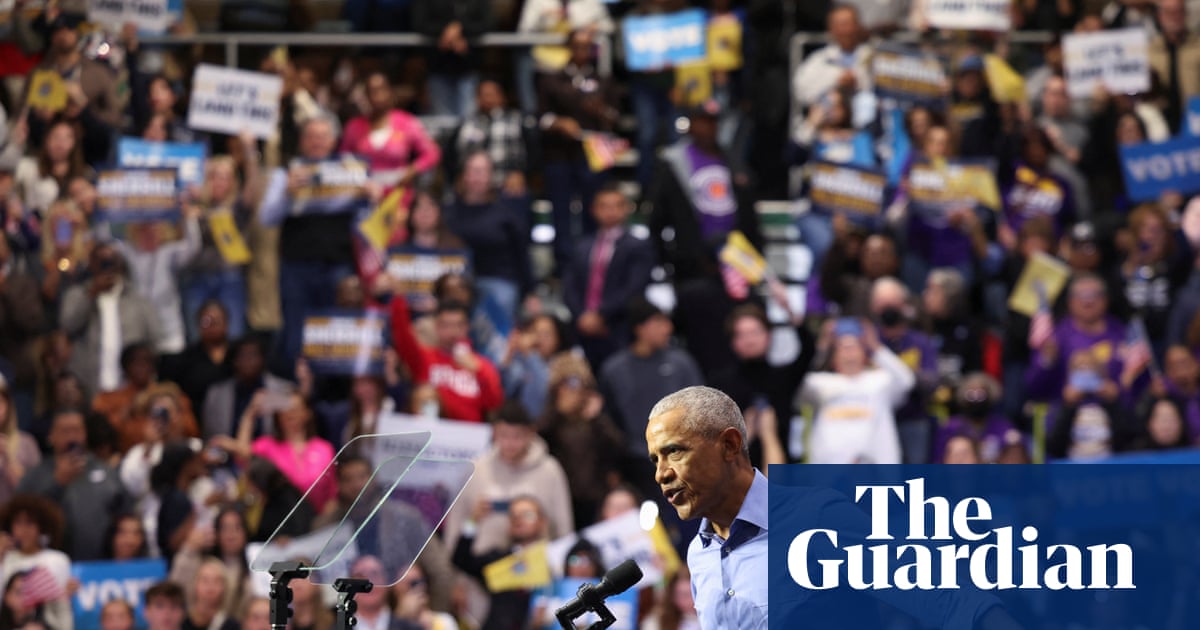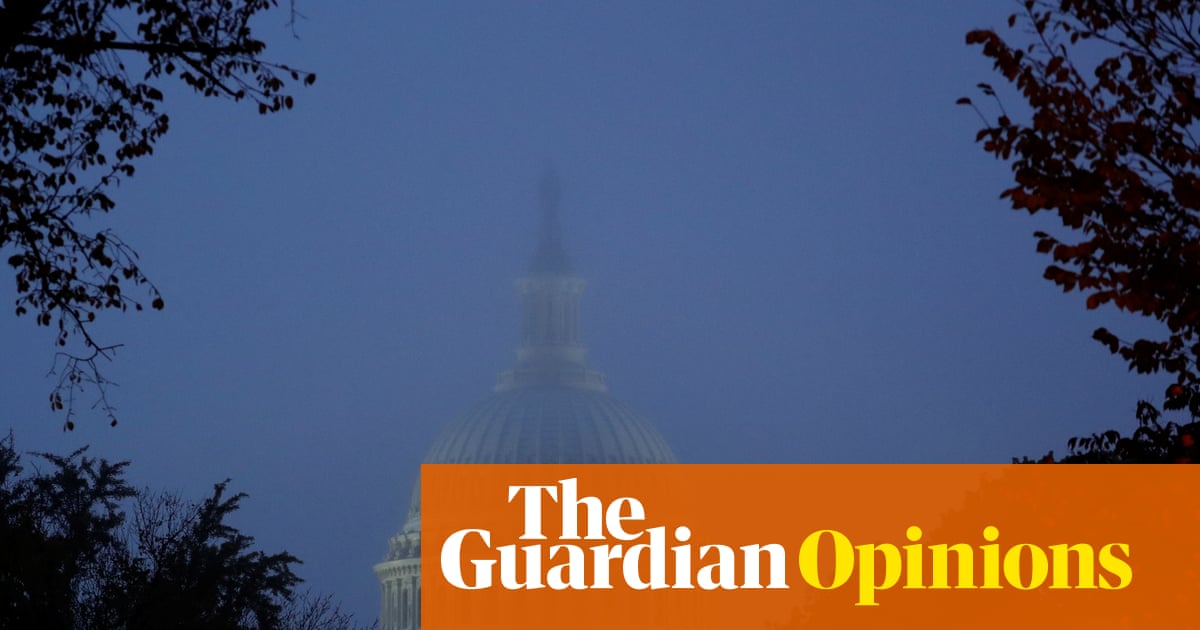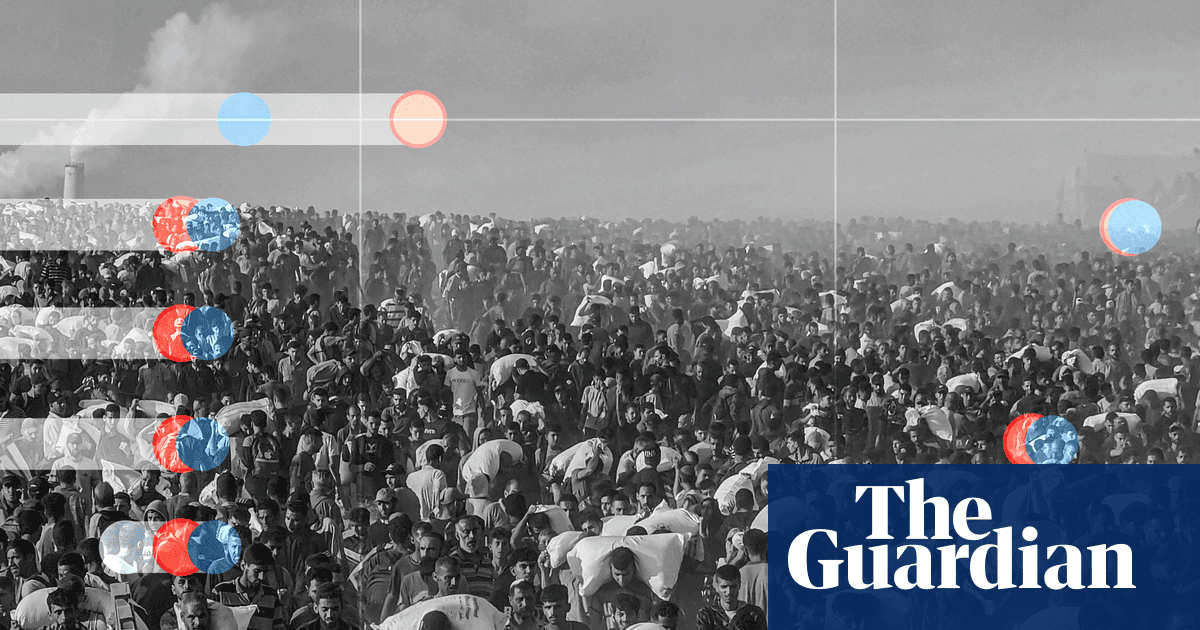Almost two years into a conflict that has cost tens of thousands of lives, amid an Israeli military campaign and humanitarian blockade that have reached apocalyptic proportions, and faced with their own powerlessness as they bear witness to what growing numbers of experts call a genocide, Emmanuel Macron has announced France’s dramatic next step: it will recognize a Palestinian state in September.
Keir Starmer quickly followed suit, stating that the UK would do likewise unless Israel took actions – including ending the appalling situation in Gaza and committing to a process leading to a two-state solution – he surely knows it will not. Palestinians rejoice; Israelis seethe; the Trump administration denounces the move and issues dire warnings. It is all profoundly pointless. The step is utterly disconnected from reality and at odds with its purported goals. It will do nothing to end Israel’s onslaught. It will not bring the parties any closer to a two-state solution. It will boost Benjamin Netanyahu’s political fortunes. The Palestinian people will end up the biggest losers.
For Palestinians, the day after France’s announcement will be much like the day prior. Israel will continue to bomb, starve and seek to ethnically cleanse Gaza; it will carry on land grabs, home demolitions, displacement of Palestinians, and will further entrench its presence in the West Bank. Already, close to 150 countries recognize the State of Palestine, barely 20 fewer than the number that recognize Israel. The entity so recognized has no defined territory, no effective government, no sovereignty. It has, in short, none of the attributes that define a state. To the Palestinians will go empty statements and diplomatic gimmickry. To Israelis, the land, the resources, the wealth. Some deal.
If anything, the situation will worsen. The Israeli government feigns fury, but the fury will fade fast. Far from feeling embattled, Netanyahu’s government will be emboldened, grateful for anything that distracts attention from the slaughter it is conducting in Gaza and that, under cover of its anger, it will redouble. Domestically, Israel’s opposition may blame the prime minister for putting the country in this position, but it feels compelled to close ranks, unanimous in its condemnation of anything that hints at a Palestinian state. Hostility to Palestinian statehood is not the province of the current Israeli government alone. On the eve of 7 October, it pervaded Israeli society; in the wake of the bloodiest attack in the nation’s history, it has become an article of faith. A year ago, presented with a bill rejecting the establishment of a Palestinian state, 68 members of the Knesset voted in favor; only the Arab parties voted against.
The damage may run deeper still. Having defied Israel, ignored its protestations, alienated its people, offered a prize to its foes, France and European governments that follow in its lead – as France hopes they might at a UN conference this week – might conclude that, for now, their work on behalf of the Palestinians is done. They will expect from them deep gratitude. They might feel relieved of any obligation to exert pressure on Israel where it really hurts and really matters – to impose tangible consequences, demand accountability, or enforce sanctions if it does not stop the war, end the siege, halt its settlement enterprise. Instead, the pressure will turn on the Palestinians to prove they are worthy of this munificent offering.
All this for what? The most absurd part of this endeavor is that it is taking place on behalf of what has become an imaginary goal. Worthy as it was, the quest for a two-state solution has come to an end. It succumbed to Israeli intransigence, Palestinian ambivalence, American fecklessness, and the rest of the world’s impotence. It failed under far more auspicious circumstances – when settlements were significantly fewer, Israel’s territorial encroachment less intrusive, Palestinian and Israeli politics more promising, popular backing on both sides greater. It failed when it might have had a chance and today it has none. Starmer illustrated the nonsense of his position even as he argued for it, justifying recognition of a Palestinian state by pointing to dwindling prospects of its coming about. The recurrent recitation of support for two states, whether by Joe Biden yesterday, Macron and other European officials today, Arab leaders at all times, is an empty lie that will not become truth by virtue of repetition.
The lie is a distraction. The priority today is to end the butchery in Gaza, which will not be done without imposing material costs on the Israeli government that is perpetrating it and depriving it of the weapons with which it does so. Beyond that is a need to reimagine creative approaches to resolve the Israeli-Palestinian conflict that renounce deceit and pretense, put aside the illusory goal of hard partition between two states, and seek a different pathway to dignified coexistence between the two peoples.
The irony is that recognizing a Palestinian state is of no interest to its purported audience: the Israeli and Palestinian people. They have a long and painful experience of such symbolic statements. The gains will be made by others, whose bitter verbal disagreements conceal a more cynical alignment of interests: recognition suits the Israeli government, which will not have to suffer from more punitive actions; the French and UK governments, which will not have to take them; and the Palestinian political system, which will cover its evident weakness with this futile victory. For the Palestinian victims of this most unimaginable of tragedies, it will end up doing nothing in the costliest of ways.
-
Hussein Agha has been involved in Israeli–Palestinian affairs and negotiations for more than half a century. Robert Malley has served in senior Middle East positions in several US administrations. They are the authors of the forthcoming Tomorrow is Yesterday: Life, Death, and the Pursuit of Peace in Israel-Palestine

 3 months ago
55
3 months ago
55

















































